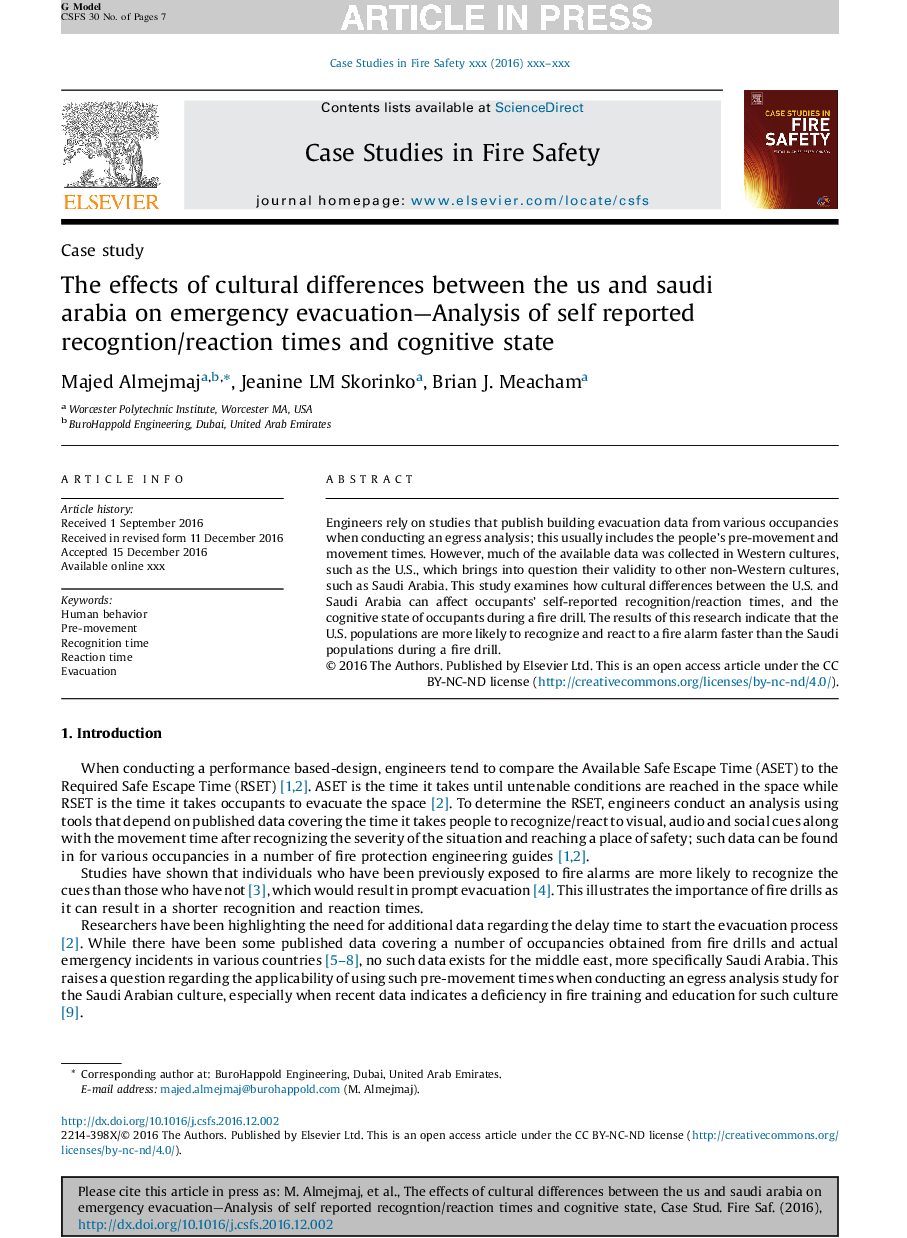| Article ID | Journal | Published Year | Pages | File Type |
|---|---|---|---|---|
| 6702005 | Case Studies in Fire Safety | 2017 | 7 Pages |
Abstract
Engineers rely on studies that publish building evacuation data from various occupancies when conducting an egress analysis; this usually includes the people's pre-movement and movement times. However, much of the available data was collected in Western cultures, such as the U.S., which brings into question their validity to other non-Western cultures, such as Saudi Arabia. This study examines how cultural differences between the U.S. and Saudi Arabia can affect occupants' self-reported recognition/reaction times, and the cognitive state of occupants during a fire drill. The results of this research indicate that the U.S. populations are more likely to recognize and react to a fire alarm faster than the Saudi populations during a fire drill.
Related Topics
Physical Sciences and Engineering
Chemical Engineering
Chemical Health and Safety
Authors
Majed Almejmaj, Jeanine LM Skorinko, Brian J. Meacham,
